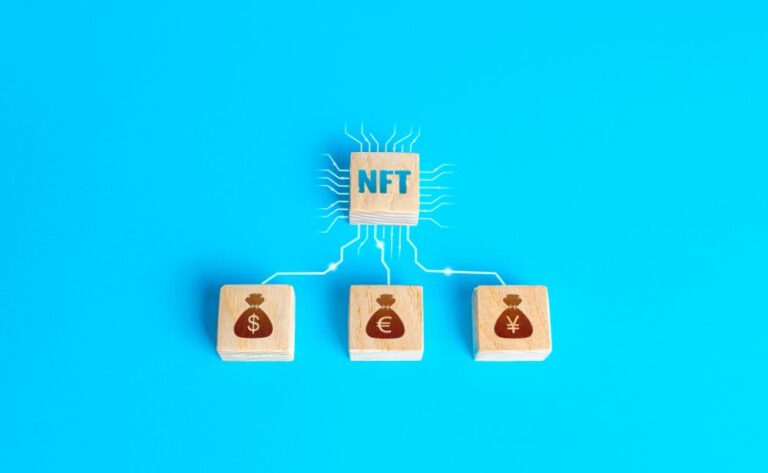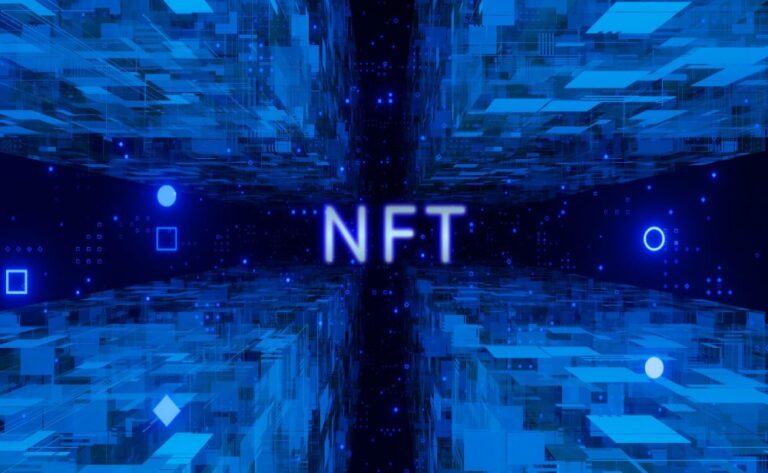
Publicity Disclosure This post/article makes mention of one or more of our advertisers’ or partners’ goods or services. When you click on links to those goods or services, we might get paid.
The Insurance Information Institute estimates that the insurance market is now worth $1.3 trillion. Even our teeth are covered by insurance, in addition to our vehicles, homes, and jobs. A 500-year-old hotel in England previously insured its personnel against ghost attacks, while Heidi Klum insures her legs, Gene Simmons, his tongue.
What about NFT insurance then? In the end, there is obviously a market for it.
Sales of NFT are anticipated to increase by $147 billion by 2026, and a number of high-profile heists in recent months have brought attention to the need for more security. If insurance was available, victims like Seth Green, gallery owner Todd Kramer, and the Bored Ape Yacht Club would undoubtedly buy it.
And yet, even the pioneering firms who offered us cryptocurrency insurance, including Breach, Coincover, and Lloyd’s, are baffled about how to protect NFTs.
Why is that, then? Why can we insure cryptocurrencies and works of art but not NFTs? Would a policy genuinely be effective if it existed? Or would it be about as useful as insurance against ghosts?
Examine NFT insurance now!
The Quick Recap
• The discussion surrounding NFT insurance and its usefulness is growing in light of a number of recent high-profile NFT heists.
Although crypto insurance is currently available, it is far more difficult to provide NFT insurance.
• Providers are left scratching their brains over problems including evaluations, risk assessments, fraud prevention, a lack of regulatory protection, and how to handle the many types of NFT theft.
• But as always, a decentralized blockchain algorithm might be the solution when more conventional approaches don’t work.
The State of Crypto Insurance Right Now
Let’s examine the state of crypto insurance to better comprehend why NFT insurance is so challenging to implement.
Coinbase announced in a blog post that they have a “hot wallet” policy for $255 million worth of coverage that guards customer funds from a significant hack in order to make up for the absence of FDIC protection (but not phishing).
The market’s first private cryptocurrency insurance policy, developed in collaboration with Coincover, was unveiled by Lloyd’s in March 2020. You may shield yourself from “losses coming from the theft of cryptocurrencies housed in online, hot wallets” for as low as £1,000.
Since then, Coincover has added options for less ardent HODLers in the down market:
All Coincover insurance are covered by the company’s Theft Protection Promise, which states: “If someone steals your funds using an attack our technology is designed to prevent, we are well placed to make up for it because we’ve insured our technology with Lloyd’s of London.”
Rival to Coincover, Breach Insurance unveiled Crypto Shield in February 2022, a product intended to resemble FDIC insurance for cryptocurrency traded on significant exchanges.
In addition to covering up to 50% of the value of your stolen cryptocurrency during the claims procedure, Crypto Shield has a strong A.M. Best rating of A-. It’s a great touch, and the 2014 Mt. Gox hack victims would have delighted to have had it.
Anyhow, it would stand to reason that any provider ready to preserve the cryptocurrency kept in a hot wallet would also be able to do the same for the NFTs. In either case, the private key is the same. Sadly, it doesn’t appear to be the case. It is even ranked as their top FAQ on Coincover.
So why won’t the major cryptocurrency insurance companies cover NFTs? Is it the fact that they are too new? Or is there another factor at work?
Why Is It So Hard to Insure NFTs?
An NFT is exceedingly difficult to insure. Insurance firms must know the following in order to underwrite a policy:
• The topics they cover;
• What it is worth;
• The possibility of receiving a claim;
• How to protect oneself against insurance fraud;
• The industry’s general regulatory environment and insurance policies
All five criteria for NFTs are challenging to ascertain.
Appraisal
Your insurance adjuster will use the vehicle’s current market value (CMV), which was determined after the accident, to calculate the amount of your cheque.
Even fine art can be evaluated correctly. According to Mary Pontillo, SVP and National Fine Arts Practice Leader for Risk Strategies, “with a standard fine art insurance policy, you can use the sales figure or purchase price as an option for how to value the item” in Insurance Business Magazine. She continues by stating that because of the big peaks and low valleys in the price of NFTs, it is more difficult for underwriters to determine the value of digital assets.
Consider the Jack Dorsey Tweet NFT, for instance. Ownership was acquired for $2.9 million. He is adamant that it is now worth $48 million, though. But since the highest price he received was only $23,660, how much would a theft make his claim worth?
Risk Evaluation
Holly and I recently purchased a new home, and my auto insurance costs increased by 15%. My provider says it’s because we relocated to a more dangerous location.
This example demonstrates the sophisticated algorithms used by insurance companies to determine the risk associated with insuring a given asset based on hundreds, if not thousands, of variables. These models, however, don’t yet exist for NFTs, and creating them would need a significant amount of resources.
Fraud Avoidance
How would you stop your policyholders from committing insurance fraud after you’ve sold your first NFT insurance policies? They might, for instance, claim they were the victim of “phishing” when, in fact, they delivered their other hot wallet $600,000 NFT.
In the crypto and NFT industries, unchecked fraud is on the rise, with $14 billion worth of digital assets stolen in 2021 alone. That’s a 516% increase from 2020.
Additionally, although there are licensed crypto fraud investigators (like Hudson Intelligence), their numbers might not be sufficient to oversee the NFT insurance sector as a whole.
Risky Regulatory Environment
The insurance sector has been subject to state regulation since the McCarran-Ferguson Act of 1945, depending on the state in which it conducts business. State insurance departments regulate their market behaviour, collect taxes from them, and, if necessary, work to keep companies from going bankrupt.
Biden’s executive order on cryptocurrency from March 2022 showed great foresight, but it made no mention of the developing crypto or NFT insurance sectors. “Consumer protections” were highlighted, although they mostly focused on safeguarding confidential information or combating fraud rather than claim settlements.
As a result, the market for crypto and NFT insurance is unregulated and unpredictable. Will they be required to close like Salvasen Health did because they sold unapproved insurance products? Will a governmental guarantee fund be able to keep them from going bankrupt after a flood of (potentially false) claims?
NFT insurance providers might be left wondering what will happen if and when the law finally shows up, much like a self-appointed deputy in the Wild West.
Defining Exactly What to Protect Against Is Ambiguous
The development of an NFT insurance product is a priority for Coincover, according to Sharon Henley, vice president of research and development.
What they will have to ask policyholders is, “Which component of your NFT do you want to safeguard,” which is one of the unexpected questions.
“Why are you purchasing protection, exactly? merely the token? for the metadata’s accuracy? For the JPEG authentication?” she questioned in an email to Motley Fool.
Her inquiries bring to light all the potential outcomes for an NFT aside from stealing. Your NFT, the artist, the metadata, the token lost during the switch from Ethereum 1.0 to 2.0, and other factors could all be demonstrated to be false.
It may be more of a hurdle than a barrier, but there is still the task of developing an à la carte “menu” of NFT insurance alternatives.
Exist any NFT insurance plans currently?
There are no commercially obtainable NFT insurance plans as of the time of writing. However, given how quickly the blockchain sector is growing, this might alter tomorrow.
One of the more promising contenders for the first genuine NFT insurance product, along with Coincover, is Nexus Mutual. The seven-person team has developed Smart Contract Cover, a sophisticated blockchain-based approach to digital asset insurance.
The Smart Contract Cover is not an insurance contract. Claims will be decided by other members. Instead of placing trust in an insurance provider, claims payouts are enforced by token-driven economic incentives, according to the Nexus Mutual website.
In their white paper, they provide a historical account of a period before to the development of insurance, when localities would pool their resources to defend citizens against the risks they collectively faced. Returning to that system would be Smart Contract Cover. Although the idea isn’t flawless, it shows promise. Moreover, blockchain-based insurance as a whole could make a breakthrough similar to the British Mark IV tank.
Would purchasing NFT insurance be worthwhile in the future?
In spite of the difficulties, NFT insurance is necessary. The market is open and there is a lot of demand. Should you purchase any to safeguard your NFTs when it does arrive?
The two ideal types of NFT insurance, in my opinion, are:
• Vigilance
• A frozen wallet
Learn how to recognize NFT scams, scrutinize every purchase you make, and then store your private keys in a cold wallet like a Ledger.
Since it’s unlikely that you’ll be trading NFTs every day, locking your cold wallet in a safe will provide less expensive safety that’s on par with earlier NFT insurance options, if not better.
The conclusion
NFTs are famously challenging to insure because of their non-fungible nature, the difficulty of evaluation, widespread fraud, and more. Although businesses are making an effort, a workable commercial solution might not appear anytime soon.
The best NFT insurance you have right now is a combination of your own prudence and awareness along with a trustworthy cold wallet.





